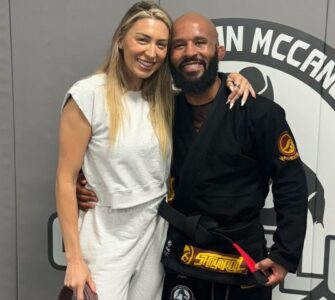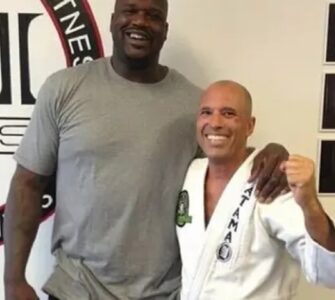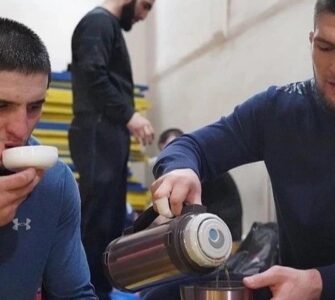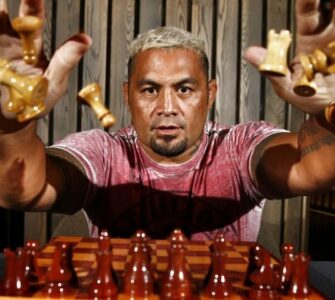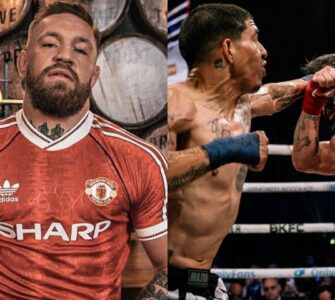In bjj you often hear about certain attributes needed for success. Whether you’re a coach or a hobbyist there’s a certain hierarchy of attributes that are desired to have in order to make a mark both in the academy and in high level competition – passion for problem solving.
John Danaher addressed the issue:
Hard working problem solvers: People come to me all the time asking what kind of attributes they need to need to develop in order to excel in jiu jitsu. Conversely, they will also claim that they can never beat a certain opponent because they are possessed of a certain attribute that they cannot overcome. Thus do I get endless numbers of inquiries asking how to build certain attributes such as strength, speed,
Flexibility, mental toughness etc. etc. These attributes are all good and desirable and will definitely help your progress – BUT THEY ARE NOT THE ESSENTIAL ATTRIBUTES I LOOK FOR WHEN APPRAISING THE POTENTIAL OF A STUDENT. What I look for can be said in a single short sentence. I look for HARD WORKING PROBLEM SOLVERS. Nothing more, nothing less. When you look at a list of great world champions you will see tremendous variation in physical and mental attributes. BUT YOU WILL SEE TWO THINGS THEY ALL HAD IN COMMON – they worked harder and proved more adept at solving the problems in front of them in the time available than their opponents. How hard working you are is not some innate quality. I ACTUALLY DON’T BELIEVE ANYONE IS LAZY – JUST UNMOTIVATED. WHAT WE CALL LAZINESS IS SIMPLY A LACK OF PASSION IN THAT DOMAIN.
(I shall write more about passion and laziness in future posts as I believe they are very important notions in our quest for improvement). As for problem solving, I think this is something we all find happiness in and we all have different ways of finding solutions. Look at the squad as an example. Eddie Cummings and myself come from a formal academic background and our problem solving methods reflect that, with a wordy, fine grained distinctions look to them. The Ryan brothers do not, and their methods of solving problems have a more practical/workshop look to them. Garry Tonon and Georges St-Pierre are somewhere in between – BUT ALL GOT OUTSTANDING RESULTS AND SOLVE THE PROBLEMS OF JIU JITSU WITH EQUAL EFFICACY- just in somewhat different ways. Work on your attributes- but don’t think they are the key to your success – realize that the keys are your capacity to work over time and solve the problems that arise as you work. Photo @banejitsu
Among other things Danaher is famous for his use of japanese terminology and endorsing a hierarchical system.
Brandon Hetzler who is a Gracie Jiu-Jitsu black bet under Rickson & Kron Gracie, and creator of Jugoshin Ryu JuJutsu. explained the meaning in more detail:
In Japan, “senpai” is an upperclassman, someone of a higher age, or senior and “kōhai” is a protégée or junior. The mentor system is found at all levels of education, and in sports clubs, martial arts, businesses, and informal or social organizations. The relationship is an essential element of Japanese seniority-based status relationships, similar to the way that family and other relationships are decided based on age, in which even twins may be divided into elder and younger siblings.
In Japanese school sports clubs, such as baseball teams, the kōhai are usually expected to perform various menial tasks for the senpai, including washing clothes and cleaning. The kōhai may not be allowed to play the sport at all or have only limited opportunities to do so until they become senpai.
More than simple seniority, senpai implies a relationship with reciprocal obligations, somewhat similar to a mentoring relationship. A kōhai is expected to respect and obey their senpai, and the senpai in turn must guide, protect, and teach their kōhai as best they can. Senpai / kōhai relationships generally last for as long as the two people concerned stay in contact, even if the original context in which the senpai was senior is no longer relevant.
In Japanese martial arts, the term senpai generally refers to senior level students. They are expected to assist the sensei with younger or less experienced students.
Danaher himself elaborated:
“In any given classroom environment you have to make a distinction between those with professional aspirations, who want to become professional jiu-jitsu athletes or coaches and those who are more recreational. I think it’s clear by definition that those recreational would be kohai but they still want to improve, they want to get better. So they’re just as much inspired by the actions of the senpai as anyone else is but what I would say is that classroom structure is not the whole story as to development in any squad. I’ve always been a huge believer in the success bringing in foundation on which more success can be built. It’s very very hard to build a successful training program without first investing in a small elect number of people who will become your role models. Remember that most athletes in the sport of jiu-jitsu tend to be rather skeptical the base mental state in martial arts is one of skepticism and that’s a good thing. You should always be questioning does this work or not. If you’re not than you can go in the wrong direction in martial arts and end up where people are knocking each other with eyes and mystical elements. I like the spirit of skepticism. “
Danaher concludes:
“You need some method of delivering effective proof to the skeptics that come through the door. That proof will be your best students, your senpai. So in the early days of the training program classroom is made in the few top athletes in the room. As people come in, they will have proofs delivered to them that whatever you’re doing works effectively. “



